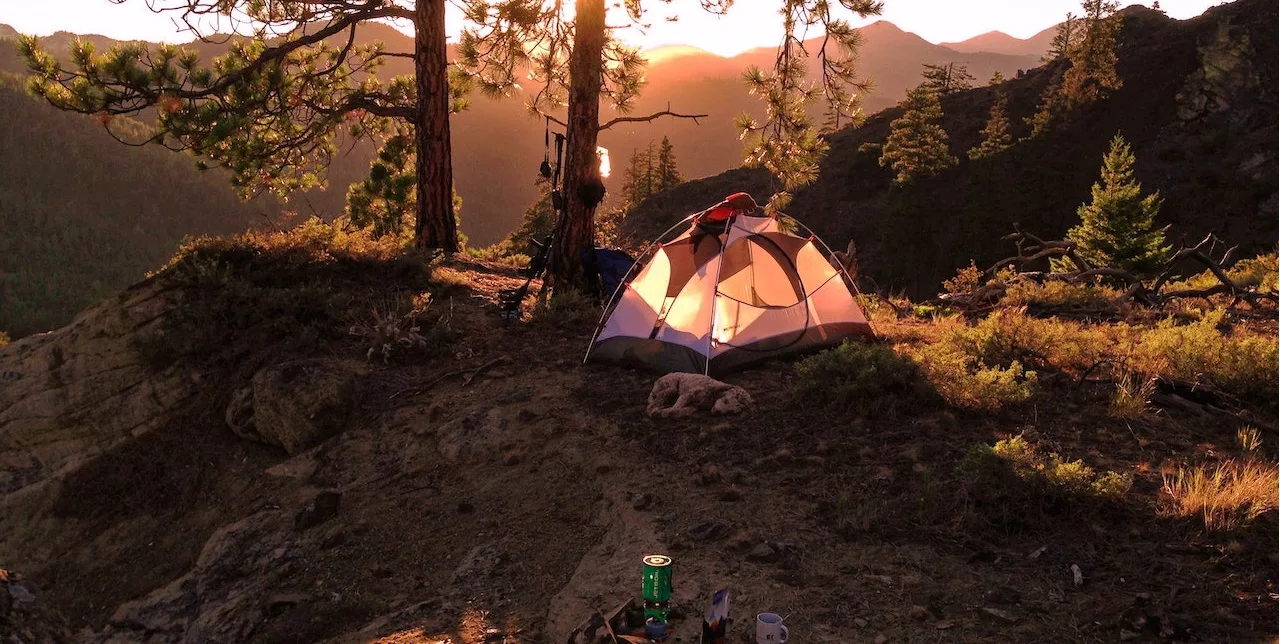
THE PRINCIPLES OF “LEAVE NO TRACE”
Exploring the outdoors offers a sense of adventure and a connection with nature. However, it is important that we embrace the principle of “Leave No Trace” to minimize our impact on the environment. By practicing this ethos, we can preserve the beauty and integrity of natural spaces for future generations to enjoy.
We’re reader-supported. When you buy through our links, we may earn a small affiliate commission.
The definition of Leave No Trace
Meaning and core principles
At its core, “Leave No Trace” is a set of seven principles that guide campers on how to minimize their impact on the environment. These principles are a compass, directing us towards responsible and sustainable practices. Let’s delve into each principle:
1. Plan ahead and prepare
Proper planning ensures a safer and more enjoyable outdoor experience. Research your destination, familiarize yourself with regulations, and assess the potential impact of your activities. By preparing adequately, you can reduce the likelihood of accidents and minimize your environmental footprint.
2. Travel and camp on durable surfaces
Choose established trails and campsites whenever possible. By sticking to durable surfaces like rocks, gravel, or compacted soil, you prevent unnecessary damage to fragile vegetation and soil erosion. Avoid creating new paths, even if it means taking a detour.
3. Dispose of waste properly
Carry out what you carry in. Proper waste disposal is essential to protect the environment and preserve the natural beauty of the surroundings. Pack out all trash, including food scraps, and properly dispose of human waste following Leave No Trace guidelines.
4. Leave what you find
Nature’s treasures, such as rocks, plants, and artifacts, should be left undisturbed. By refraining from collecting souvenirs, we contribute to the preservation of ecosystems and allow others to appreciate the beauty of the outdoors.
5. Minimize campfire impacts
Campfires can be a delightful part of the outdoor experience, but they can also cause significant damage if not managed responsibly. Use established fire rings and bring your own firewood to avoid depleting the local resources. Always fully extinguish your fire before leaving the area.
6. Respect wildlife
Observe wildlife from a distance and refrain from approaching or feeding them. Respecting their natural behavior helps maintain the delicate balance of ecosystems. Remember, we are guests in their home, and our presence should not disrupt their lives.
7. Be considerate of other visitors
The outdoors is meant to be shared and enjoyed by everyone. Be mindful of others’ experiences and show respect for their solitude and enjoyment. Keep noise levels down, yield to fellow hikers, and follow designated rules and guidelines.
Leave No Trace in practice
How to Prepare for an outdoor Trip
When planning your adventure, take into account the principles of Leave No Trace. Research the area’s specific regulations and recommendations. Consider the gear you need, ensuring it aligns with low-impact practices. Opt for lightweight and eco-friendly equipment, such as reusable containers and biodegradable toiletries.
On the trail and at campsites
While on the trail, stick to established paths to protect vegetation and minimize erosion. Camp only in designated areas and utilize existing tent pads or clearings. Set up your camp away from fragile habitats and bodies of water to avoid disturbing wildlife and prevent pollution.
Waste management and disposal
Proper waste management is crucial. Pack out all trash, including food wrappers, and dispose of it in designated receptacles. When it comes to human waste, use established toilets or follow the principles of Leave No Trace for backcountry waste disposal. Use biodegradable soap, and disperse dishwater at least 200 feet from any water source.
Check out our tents
Looking for high-quality tents at great deals and discounts? Visit our shop of camping tents, where you’ll find a wide range of options to suit your outdoor needs. Remember, choosing the right gear is an integral part of practicing Leave No Trace. Opt for lightweight, durable, and environmentally-friendly tents that align with responsible outdoor practices.
Sustainable adventures
Adhering to the principles of “Leave No Trace” ensures the preservation of natural spaces and the sustainable enjoyment of the outdoors. By planning ahead, minimizing our impact, and respecting the environment, we can play our part in safeguarding the beauty and ecological balance of these cherished spaces. Let us embrace Leave No Trace and leave the outdoors as we found it, or even better, for generations to come.
FAQ – Leave No Trace: Preserving the Outdoors
1. Why is practicing Leave No Trace important?
Leave No Trace is important because it helps minimize our impact on the environment and preserves the natural beauty of outdoor spaces. By following its principles, we can ensure that future generations can enjoy and experience nature in its pristine form.
2. How can I plan ahead and prepare for a Leave No Trace adventure?
To plan ahead and prepare for a Leave No Trace adventure, research your destination, familiarize yourself with regulations, and assess the potential impact of your activities. Additionally, choose lightweight and eco-friendly gear, such as reusable containers and biodegradable toiletries.
3. What should I do to minimize my campfire impacts?
To minimize campfire impacts, use established fire rings and bring your own firewood to avoid depleting local resources. Always fully extinguish your fire before leaving the area. Remember, responsible fire management helps prevent wildfires and preserves the natural habitat.
4. How should I dispose of waste properly?
Proper waste disposal is crucial in Leave No Trace practices. Pack out all trash, including food wrappers, and dispose of it in designated receptacles. For human waste, use established toilets if available, or follow Leave No Trace guidelines for backcountry waste disposal. Use biodegradable soap and disperse dishwater away from water sources.
5. Why is it important to respect wildlife?
Respecting wildlife is important as it helps maintain the delicate balance of ecosystems. Observe wildlife from a distance and avoid approaching or feeding them. By respecting their natural behavior, we can ensure their well-being and contribute to the overall health of the environment.
6. How can I be considerate of other visitors in outdoor spaces?
Being considerate of other visitors is crucial in creating a positive outdoor experience for everyone. Keep noise levels down, yield to fellow hikers on trails, and follow designated rules and guidelines. Respect others’ solitude and enjoyment of the outdoors by maintaining a friendly and cooperative attitude.
Remember, embracing Leave No Trace principles enhances our outdoor experiences while ensuring the long-term preservation of nature’s wonders. By incorporating these practices into our adventures, we can play an active role in protecting and appreciating the beauty of our natural world.
Disclaimer: We are a participant in affiliate advertising programs that provide a means for us to earn advertising fees by advertising and linking to their websites. We may earn from qualifying purchases.


Disclaimer: We are a participant in affiliate advertising programs that provide a means for us to earn advertising fees by advertising and linking to their websites. We may earn from qualifying purchases.



Copyright © 2022 Tents Sales.



